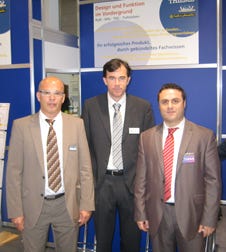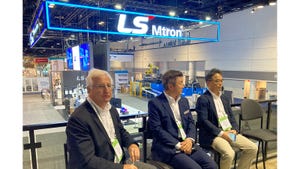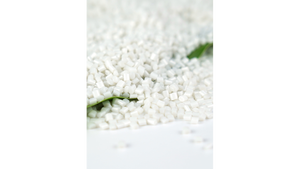Spotlight on Thieme
New partners bring new skills, and hopefully new business, to this PUR processor.
December 18, 2009
New partners bring new skills, and hopefully new business, to this PUR processor.
Even if you are among the best in the world at what you do, you always will be limited to doing, well, what you’re best at. What about those projects that get away from you? Polyurethane processor Thieme decided it wanted a shot at those, too. “That’s why we want to offer our customers not just PUR but also thermoplastics,” said Hartmut Bührer, plant manager and purchasing manager for Thieme (Teningen, Germany).
|
Executives at Thieme searched for about 12 months for potential partner firms offering thermoforming and injection molding. “Thermoforming works well for lower-cost, lower-volume projects. PUR fits in the middle, and injection molding is higher cost but higher volume,” says Bührer, explaining the reasoning for choosing those competitive processes. Thieme, with a sales office in France and a manufacturing presence near Chicago, eventually settled on two smaller German firms: thermoformer WKV (Rohrbach) and injection molder Kabo-Plastic (Hartheim). WKV was established in 1991; Kabo-Plastic’s molding history stretches back more than 40 years.
The three companies joined forces at a stand at the Fakuma trade show in Germany in October, but the work on their partnership began much earlier. “We started in early 2009, training each other’s employees so that everyone understood the other’s process and capabilities,” said Bührer. “In the past, we often competed with these processes, but now we get to approach customers offering all three,” he says, letting the pleasure creep into his voice.
Thieme, as the initiator and largest firm, handles the sales and marketing side. “We meet with customers, determine what’s needed, and then bring in the appropriate experts,” he explains. The companies remain separate, with a short contract used to detail how costs and revenue are shared. Regarding the simple contract, Bührer says, “The chemistry needs to be there, and trust too.”
For Thieme, the search for that chemistry meant finding partners who also were family-run, well-established processors, and kicking the financial tires to be sure these would be around for a while. Kabo is just 18 miles (30 km) from Thieme, while WKV is farther (180 miles/300 km) but still within a few hours’ drive. “More important than the location was finding the right partner,” notes Bührer.
The new triumvirate only really took life this autumn, but Bührer said it is off and running. “We’ve had lots of inquiries come in. We’ve made some bids, and are just waiting for the first order” requiring multiprocess service. He doesn’t believe he must wait much longer: “Our customers have really run down their inventory,” he notes, echoing comments often heard of late in the industry.
Thieme derives its business from automotive, medical devices, and various industrial markets. Its facility in Chicago is devoted almost exclusively to processing of parts for medical devices. Its parent company has a number of other businesses, including one entering the solar cell market, in which he reckons the need for PUR-formed cases also could soon appear—as could demand for thermoformed and molded parts. “Important for customers is they have one partner, one price, one delivery date, and a single person responsible for a project,” he states. Plus, he says, by offering all three processes, customers, who often are not plastics experts, can rest assured their project isn’t being forced to fit an individual company’s process. “With us, customers can free more people to focus on their core competencies,” he adds.
Thieme also offers water-based coating, so that it can guarantee consistent coloration even of multimaterial devices, including parts processed at all three companies. The three, just starting their mutual efforts, are focused on their domestic market now, says Bührer, but with Thieme’s international manufacturing capacity, that may not remain the case for long. —Matt Defosse
About the Author(s)
You May Also Like



